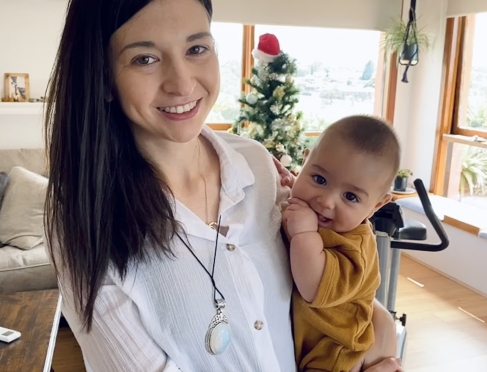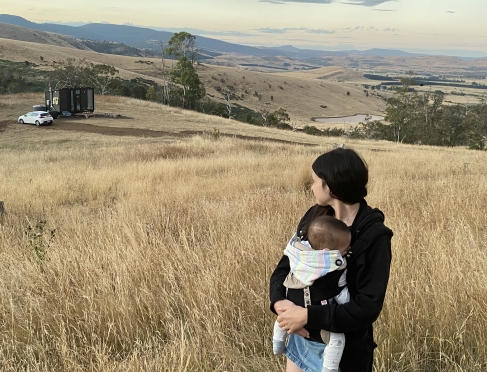Ambassador Profile - Heidi La Paglia Reid

Welcome to the IncludeAbility Ambassador Profile Series.
As part of our Ambassador Profile series, we caught up with Autistic advocate Heidi La Paglia Reid.
About Heidi
Can you tell us a little bit about yourself?
"My name is Heidi. I am a 30-year-old Autistic advocate and mum to a very busy 10 month old. I work 4 days a week in systemic disability advocacy and I am passionate about making the world a better place for women, people with disability and all other marginalised groups".
"In my spare time (haha, what spare time?) I enjoy going for walks with my little one, listening audio books and scrapbooking".
Achievements
What are some of things you are most proud of?
"I experienced severe situational mutism for most of my childhood, to the point where the other kids at my school thought I couldn’t speak, and now I am a proud disability and women’s rights advocate, with no fear of public speaking. This in itself is an achievement even I can’t really believe".
Current Projects
What are some of the things you are currently working on?
"Lots of things! But one of the most exciting is that I’m involved in doing work to ensure the National Autism Strategy is gender inclusive and responsive to the needs of Autistic women and gender diverse people".
Tips and Advice
Do you have any advice for people with disability seeking employment and/or seeking to advance their career?
"For anyone who is applying for a job or is already employed, I would say, don’t be afraid to ask for what you need. Whether its flexible work hours, a sit stand desk or breaks in meetings, it’s always better to be upfront. While I was always up front and often about my accommodation requirements in employment, I now would ask the questions before I even apply for a role, and I wouldn’t take a role that refuses to make employment accessible. I think employers are more open now to flexibility and accessible work practices than they used to be, and those that aren’t need to know that it’s not good enough".
"For anyone looking to advance in their role or progress their career, my main advice would be to find a mentor – ideally one with disability. There are lots of fantastic disabled leaders out there who can help you progress or can provide tips on their journey. Climbing the ladder isn’t easy for those of us that face disadvantage because of our identities, but there are many who have done it. I think as a community generally, we want to see each other succeed, so tap into that!"
Can you share some advice or tips for employers when recruiting or supporting their existing employees with disability?
"My advice for employers is similar to advice for employee’s and job seekers. Be up front and open about providing accommodations. Don’t wait for your employee’s to request what they need. Ask as soon as you employ someone, “are there any accommodations you require,” or “is there anything I can do to make your job easier?” Providing examples is also great. For example you can say, “Employee x works flexible hours so they can go to medical appointments,” or “x uses a screenreader".”
Lived Experience
What role does lived experience have (or should have) in projects such as IncludeAbility? And more broadly, society?
"I think it is absolutely essential. All successful policies, programs, and even products, no matter what they are, are informed by lived experience".
"I think co-design and lived experience advisory groups should be a key part of the development, implementation and even evaluation of all government and even non-government policies, strategies and programs. Whether it concerns people with disability, survivors of violence, or remote first nations communities, being guided by lived experience is essential to success".
Favourite resource
What is your favourite IncludeAbility resource and why do you like it?
"The resource on ‘Identifying as a person with disability in the workplace’ is great. I think this is something a lot of people grapple with and that there is a lot of stigma around. While things are slowly changing, a lot of people still don’t disclose their disability in their workplace out of fear of discrimination or differential treatment. Regardless of the situation, its great to have all the pro’s and con’s of disclosing upfront and also just to know you are not alone".


